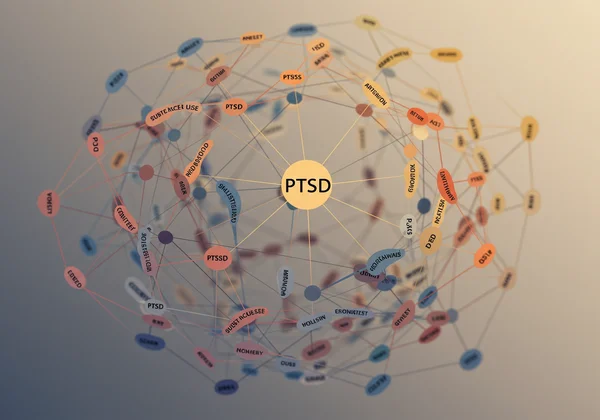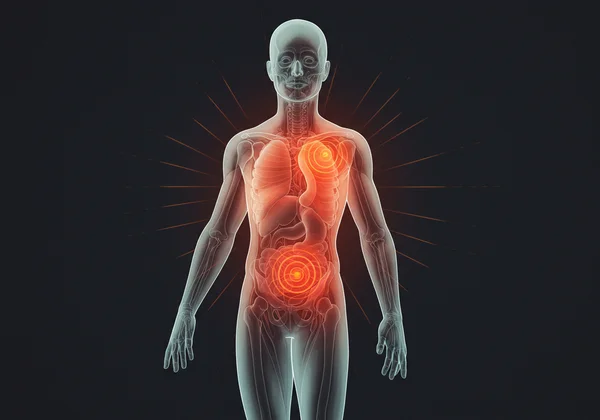Untreated PTSD: Long-Term Effects & Why Taking a PTSD Test Matters
August 10, 2025 | By Henry Davis
The Silent Burden: Understanding Untreated PTSD
Living with the aftershocks of trauma can feel like carrying a silent, invisible weight. The memories, the heightened alertness, the emotional numbness—these experiences can isolate you, making you feel misunderstood and alone. Many people hope that these feelings will simply fade with time, but for those with Post-Traumatic Stress Disorder (PTSD), the symptoms often persist and can worsen without support. You might be asking yourself, what happens if PTSD is left untreated? Understanding the long-term effects of untreated PTSD is not about causing fear; it's about empowering you with knowledge so you can take the first step toward healing.
Ignoring the signs of trauma doesn't make them disappear. Instead, they can seep into every area of your life, affecting your mind, body, and relationships. Recognizing that what you're feeling is a valid response to an overwhelming experience is crucial. If you are questioning your symptoms, taking a confidential first step can provide clarity. A free PTSD test can be a valuable tool for self-understanding on your journey to recovery.

The Escalating Impact: How Untreated PTSD Affects Mental Health
Left unaddressed, PTSD's toll on mental health rarely remains constant. What might begin as manageable anxiety or occasional bad dreams can evolve into more severe and debilitating conditions. When your brain is trapped in high alert, regulating emotions and thoughts becomes a constant battle, triggering a cascade of psychological challenges.
Worsening Symptoms: From Anxiety to Depression & Dissociation
The main symptoms of PTSD—reliving the trauma, avoiding certain situations, experiencing negative shifts in mood, and feeling constantly on edge—can get worse over time. Constant anxiety can morph into a generalized anxiety disorder, where worry becomes a permanent fixture in your life. The persistent sadness, guilt, or shame associated with the trauma can deepen into major depression, stripping away your interest in activities you once loved.
Dissociation, the feeling of being detached from your body or reality, can also become more frequent. This coping mechanism, while protective during the trauma, becomes a significant problem when it interferes with your ability to stay present in your daily life. What are the signs of PTSD? They often overlap with these conditions, making it difficult to untangle them without guidance.
Increased Risk of Co-Occurring Mental Health Conditions
Untreated PTSD creates fertile ground for other mental health issues to develop. The chronic stress and emotional pain can lead many to seek relief through unhealthy coping mechanisms. This significantly increases the risk for substance use disorders, as alcohol or drugs may be used to numb feelings or suppress traumatic memories.
Furthermore, eating disorders can emerge as a way to exert control in a life that feels chaotic and unpredictable. The emotional dysregulation common in PTSD is also a hallmark of conditions like borderline personality disorder. Without intervention, you may find yourself battling multiple interconnected mental health challenges, making recovery more complex. Understanding these connections is a key step, and an online ptsd assessment can help illuminate these patterns.

Beyond the Mind: Physical & Social Consequences of Persistent Trauma
The impact of untreated PTSD extends far beyond psychological distress. The mind and body are intricately linked, and the chronic stress response triggered by trauma takes a significant physical toll. At the same time, the internal struggle often manifests outwardly, affecting how you connect with others and navigate the world.
The Body's Burden: Chronic Physical Health Complications
Living in a constant state of "fight or flight" floods your body with stress hormones like cortisol. Over long periods, this can lead to serious physical health problems. Research from organizations like the U.S. Department of Veterans Affairs has shown strong links between PTSD and chronic physical conditions.
These can include:
-
Cardiovascular Disease: Increased heart rate and blood pressure can raise the risk of heart attacks and strokes.
-
Chronic Pain: Unexplained muscle and joint pain, fibromyalgia, and chronic fatigue are common complaints.
-
Gastrointestinal Issues: The stress can disrupt your digestive system, leading to problems like Irritable Bowel Syndrome (IBS).
-
Weakened Immune System: You may find yourself getting sick more often as your body's defense systems are compromised.

Strained Connections: Impact on Relationships and Daily Functioning
PTSD can build walls between you and the people you love. Symptoms like emotional numbness can make it hard to feel or express affection, leaving partners and family members feeling shut out. Irritability and angry outbursts can create a tense home environment, leading to frequent conflict and what some term relationship ptsd test worthy concerns.
Avoidance behaviors can also lead to social isolation. You might stop going to places or seeing people that remind you of the trauma, shrinking your world until you feel completely alone. This can also affect your professional life, as difficulty concentrating, memory problems, and emotional volatility can make it challenging to maintain employment and perform daily tasks.
Can PTSD Go Away? The Critical Role of Early Intervention & Support
One of the most common questions people ask is whether PTSD can resolve on its own. While some individuals may experience a natural reduction in symptoms over time, for many, professional support is essential for true, lasting recovery. The idea that you can simply "get over it" through willpower alone is a harmful myth.
The Myth of "Just Getting Over It": Why Symptoms Persist
Trauma changes the brain. It recalibrates the nervous system to be on constant alert for danger. These are not changes that can be undone by simply thinking positively or ignoring the problem. The memories are stored differently, and the emotional responses are wired to a survival instinct.
Trying to push through without help is like trying to heal a broken bone without setting it. You might learn to function around the pain, but the underlying injury remains, causing chronic issues. Acknowledging that you need support is not a sign of weakness; it is a sign of profound strength. A ptsd self test can be that initial act of courage.
Empowering Action: The Benefits of Seeking Help Sooner
The sooner you seek support, the better your chances of preventing the long-term consequences discussed above. Early intervention can help you:
- Learn Healthy Coping Skills: Therapy provides tools to manage flashbacks, anxiety, and emotional triggers effectively.
- Process the Trauma: Treatments like Eye Movement Desensitization and Reprocessing (EMDR) and Trauma-Focused Cognitive Behavioral Therapy (TF-CBT) help your brain process and file away the traumatic memory correctly.
- Rebuild Connections: Learning to regulate your emotions can help you repair and strengthen your relationships with loved ones.
- Reclaim Your Life: Healing allows you to move from merely surviving to truly thriving.
Discover how our science-based PTSD assessment can provide you with crucial insights into your experiences. It can validate what you're feeling and be the powerful first step toward seeking professional help.

Taking the First Step: Your Path to Understanding and Healing
Living with untreated PTSD can feel like navigating a storm without a compass. The long-term effects on your mental, physical, and social well-being are significant and real. However, it is crucial to remember that healing is possible, and you do not have to walk this path alone. Knowledge is power, and understanding the risks of inaction is the first step toward reclaiming your health and happiness.
You have already taken a positive step by seeking out this information. The next one is to gain a clearer understanding of your own experiences. We encourage you to take our free PTSD test today. It is completely confidential, based on the clinically-recognized PCL-5 criteria, and designed to provide you with immediate, private insight. This simple action can be the start of your journey toward a brighter, more peaceful future.
Frequently Asked Questions About Untreated PTSD
What are the most common long-term effects of untreated PTSD?
The most common long-term effects include worsening mental health conditions like chronic depression and anxiety, an increased risk of substance use disorders, significant physical health problems such as cardiovascular disease and chronic pain, and severe difficulties in maintaining relationships and daily functioning.
Can PTSD resolve on its own without professional help?
While some people experience a decrease in symptoms over time, it is uncommon for PTSD to fully resolve without any support. The changes trauma causes in the brain often require targeted therapeutic interventions to heal properly. Relying on time alone can lead to the development of the long-term consequences mentioned in this article.
How do I know if my symptoms are related to trauma or PTSD?
It can be difficult to distinguish between a normal response to a distressing event and PTSD, especially since conditions like anxiety and depression have overlapping symptoms. A key indicator of PTSD is the presence of all four symptom clusters: re-experiencing, avoidance, negative mood changes, and hyperarousal. An online screening tool can help you see if your symptom pattern aligns with those of PTSD, giving you a clearer direction. For initial clarity, you can explore your symptoms with our assessment.
What should I do if I suspect I have untreated PTSD?
If you suspect you have untreated PTSD, the first step is to gather information and gain personal insight in a safe way. Taking a confidential ptsd test online can validate your feelings and provide a structured summary of your symptoms. The next, most important step is to share these results with a qualified healthcare professional, such as a doctor or therapist, who can provide a formal diagnosis and guide you toward effective treatment options.